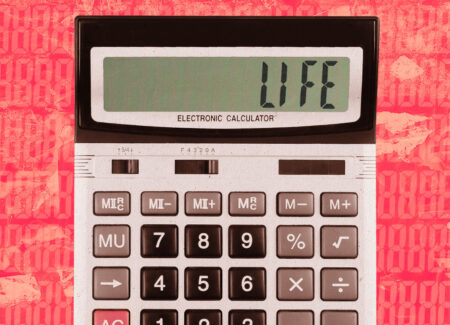We love the list below. The 10 most popular articles of 2019 are not only interesting in their own right but together illustrate the range of ways behavioral science influences our personal and professional lives.
Simon Shaw pulled back the curtain on the dark nudges employed by hotel booking sites—his article tops the list. Allison Damonger shed light on how households divide the cognitive labor it takes to run a home. “Be an elegant simplifier,” implored designer Kate Clayton, to round out the top three.
Personal development was a popular theme: Nir Eyal articulated his notion of progressive extremism as a way to knock out bad habits, we spoke to Wendy Wood about her decades of research on habits and behavior change, and Caroline Webb described her prosocial, Burning Man–esque experiment in London.
Also on the list: Laszlo Bock explained how to keep hiring simple and scientific, our managing editor Elizabeth Weingarten asked questions about the emerging question-asking research, and Oliver Scott Curry offered a critique and alternative to Moral Foundations Theory. Finally, Ed Bradon argued that there’s an expertise revolution happening on the internet.
Take a moment to dive into the pieces your fellow behavioral science enthusiasts read most.

Consumers Are Becoming Wise to Your Nudge
By Simon Shaw
New research indicates that consumers are catching on and may be annoyed by certain nudges, potentially limiting their effectiveness.

How Couples Share “Cognitive Labor” and Why it Matters
By Allison Daminger
Cognitive labor is unevenly distributed between men and women in households. New research shows there’s nuance to this breakdown, with implications for how we address gender equality across society.

Be an Elegant Simplifier
By Kate Clayton
Good design is transparent.


To Change a Habit, Get Extreme. Progressively.
By Nir Eyal
Starting a new habit is very different from breaking an existing one. If you want to give something up, try this advice.

How to Go to Burning Man Without Going to Burning Man
By Caroline Webb
You don’t have to suffer through a dust storm to experience radical inclusion, generosity, and self-expression. How one behavioral scientist brought Burning Man home.

What’s Wrong with Moral Foundations Theory, and How to get Moral Psychology Right
By Oliver Scott Curry
Moral Foundations Theory has theoretical and empirical weaknesses argues Oliver Scott Curry. He proposes a new theory of morality.


Good Habits, Bad Habits: A Conversation with Wendy Wood
By Michaela Barnett
Early in her career, psychologist Wendy Wood noticed a trend: many of her colleagues struggled to get things done. Intelligence, talent, and motivation didn’t seem to suffice. She set out to discover why.

Who Asks Questions, And What It Tells Us
By Elizabeth Weingarten
Does assessing question-asking behavior give us valuable data about women’s empowerment and gender equality? Or does it simply give us one piece of data from a much larger pie?

Hiring Isn’t Rocket Science: Why the Most Boring Strategy Is Best
By Laszlo Bock
To fix the hiring process, we have to replace hubris with heuristics.

Expertise in the Age of YouTube
By Ed Bradon
The internet is often derided as the place productivity and well-being go to die. But if it can democratize expertise that judgment might start to look premature.






